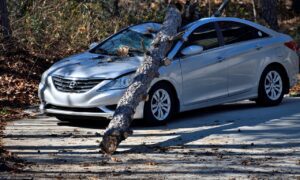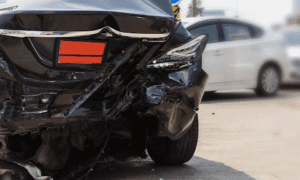Most drivers believe their auto insurance will protect them during any car accidents that occur. The policyholder will discover their insurance policy lacks protection when they need to file a claim. The situation develops from policy restrictions which define particular situations that insurance companies choose to exclude from their coverage.
Policy exclusions exist in every auto insurance contract as a standard practice. These clauses determine if an accident victim will get compensation or not. Understanding what these exclusions are and how they work can help drivers avoid costly surprises.
What Are Policy Exclusions?
The insurance agreement contains a policy exclusion which establishes particular circumstances that will prevent coverage from being available. Insurance companies determine their payment coverage through exclusions which serve as tools to control risk.
The insurance policy contains specific restrictions which determine who may drive the vehicle and which uses of the car are protected and what types of damages will be eligible for coverage. The terms of service usually stay hidden in the fine print of insurance contracts because most people never read them until they experience an accident.
The driver assumes that their insurance policy provides coverage for every accident but their policy contains specific situations that are not covered.
- Commercial or rideshare use of the vehicle
- Drivers not listed on the policy
- Intentional acts or reckless driving
- Driving under the influence
- Out-of-state or out-of-country accidents
The information which victims present during their claims process becomes the main subject of disagreement between insurance companies and victims.
Why Policy Exclusions Create Problems
Insurance companies start their investigation by checking policy terms to find any applicable exclusions when a car accident happens. The smallest details in accident circumstances determine insurance companies whether they will provide coverage or not.
The accident creates confusion which leads to frustration for everyone who got hurt in the crash. The victims will need to pay for damages that their insurance policy did not cover. Disputes about policy exclusions create delays in claims processing and sometimes result in claim denials which force victims to take legal action against insurance company interpretations.
Common Types of Car Insurance Exclusions
Your ability to identify potential risk areas improves by learning about the most common exclusion types.
1. Commercial Use Exclusion
Your personal auto insurance policy will not protect you if you use your personal vehicle for work purposes like deliveries or rideshare driving. Many policies exclude accidents that happen during business activity.
The insurance company will deny payment to the food delivery driver when they get into an accident during work hours. The employer needs to use their commercial insurance or rideshare insurance when these situations occur.
2. Unlisted Driver Exclusion
Your insurance policy will deny coverage when someone who does not appear on your policy list drives your car and gets into an accident. This is particularly common in households where family members share vehicles without updating policy information.
3. Intentional or Reckless Conduct
Insurance provides protection against accidental events but it does not protect against intentional actions or highly dangerous conduct. The insurer will refuse to pay the claim when a driver deliberately creates an accident or races another vehicle or drives in an aggressive manner.
4. DUI or Criminal Activity
The insurance company will refuse to provide coverage when the driver operated the vehicle under the influence of alcohol or drugs during the accident. The same may apply if the accident occurred while committing a crime, such as fleeing from police.
5. Mechanical or Maintenance Issues
Damage caused by poor maintenance or mechanical failure may also be excluded. The insurance company will claim the accident resulted from driver carelessness instead of providing coverage for the incident.
6. Excluded Drivers by Name
Policyholders exclude specific drivers from their coverage to obtain lower insurance costs. The insurance provider will refuse to pay for damages from any accidents that occur when the other person drives the vehicle.
The Impact of Exclusions on Victims
The at-fault driver together with their insurance policy encounters modifications because of policy exclusions.
- The at-fault driver will need to pay for all damages and injuries including medical expenses and vehicle repair costs when an exclusion applies.
- For victims: If the at-fault driver’s insurance denies coverage due to an exclusion, the victim must turn to other sources, such as their own uninsured/underinsured motorist coverage.
The victim needs to file a lawsuit against the at-fault driver directly in certain situations but this process takes a long time and produces unpredictable results.
How to Protect Yourself from Coverage Gaps
People usually discover the specific details of their insurance policy only after they experience an incident that requires coverage. People must check their insurance coverage before time to prevent unanticipated events from occurring.
Protect yourself by following these essential steps:
- Your policy needs an annual review. Insurance companies sometimes change exclusions when policies renew.
- Ask questions. Your agent needs to explain which situations fall outside of coverage clearly when something seems unclear.
- You need to reveal your vehicle usage to the insurance company. The thing is you need to verify your insurance policy includes commercial or rideshare coverage when you use your car for work purposes.
- Add all regular drivers. Your insurance policy requires you to list every person who operates your vehicle on a daily basis.
- Consider umbrella coverage. An umbrella policy provides extra protection when your primary insurance policy fails to cover a claim.
Being proactive helps ensure you are not caught off guard when you need coverage the most.
What to Do if Your Claim Is Denied
If your insurance company denies your claim because of an exclusion, it does not necessarily mean the decision is final. There are different methods to dispute or bypass the denial.
- Request a written explanation. The insurance provider needs to explain why they refused to provide coverage. The explanation of their decision will assist you in deciding your following actions.
- Review your policy language. Some exclusions are open to interpretation, and vague wording can work in your favor.
- Consult a car accident lawyer. A lawyer experienced in insurance disputes can evaluate whether the exclusion truly applies.
- File an appeal. Many insurers have internal appeal processes where you can present additional evidence.
- Use other coverage. If applicable, file under your uninsured motorist or medical payments coverage while the dispute is resolved.
The Legal Side of Policy Exclusions
The courts intervene when insurance companies and policyholders struggle to reach an agreement about exclusion terms. Judges often interpret unclear language in favor of the insured, especially if the exclusion was not clearly explained or prominently displayed in the policy.
The denial of a claim does not stop you from having the chance to get your money back. Legal representation can make a significant difference in these cases.
Car insurance exists to protect you financially after an accident but policy exclusions create barriers that stop you from getting what you expected. The insurance policy contains provisions that restrict protection in ways which drivers do not understand which results in no coverage during emergency situations.
Your policy knowledge before accidents happen together with gap coverage solutions will create a major difference. The insurance company does not provide an absolute guarantee of their decision when they deny your claim based on an alleged exclusion. Review your policy, get professional advice, and explore your legal options.
You can protect yourself from hidden dangers of policy exclusions during car accident insurance claims by planning ahead and staying alert.



































